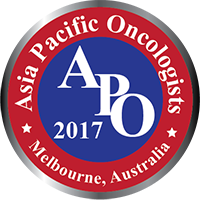
Amar Ranjan
All India Institutes of Medical Sciences, India
Title: Rise of circulating thrombopoietin following surgery in gastrointestinal cancer patients: correlation with a preceding increase in levels of Procalcitonin
Biography
Biography: Amar Ranjan
Abstract
Thrombopoietin (TPO) is a protein that is encoded by the TPO gene. It regulates the production of platelets. It is believed that plasma level of TPO is regulated by its binding to platelets and megakaryocytes. A prospective study was conducted comprising of 72 cases (32 female, 40 male) of gastrointestinal cancer, which were undergone surgery in the year 2016. It included cancer of esophagus, stomach, colon and ano-rectum. Three serial whole blood samples were taken from single patient, one preoperatively, 2nd and 3rd postoperatively on day 3 and day 5. Serum samples were stored at-80 °C. Samples were tested for TPO and PCT by ELISA Technique. Statistical analysis was done. Day 3 after surgery, patients (n=72) showed a significant thrombocytopenia followed by a reactive thrombocytosis on Day 5. Platelet recovery was preceded by a significant rise in TPO (from 162.4±118.8 pg/ml at baseline to 355.3±304.4 pg/ml at 72 hours, P<0.0001), which in turn was preceded by a marked increase in PCT (from 141.7±406.4 pg/ml at baseline to 659.6±1087.0 pg/ml at 72 hours, P<0.0001). The rise of both PCT and TPO was significantly higher in all patients at an interval of 3-4 days. No correlation was found between the post-operative decrease in platelet mass and changes in either the TPO or PCT levels. Considering the change of parameters from day 3 to 5, there was rise in platelets and decrease in TPO and PCT. These changes were not found statistically significant. But statistically significant changes were noticed from day 1 to day 5 similar to day 1 to day 3. Findings suggest that circulating TPO levels, besides being controlled by changes in platelet mass, are also influenced by certain cytokines involved in oncogenesis and inflammatory process. Studies suggest that it is influenced by IL-6. It has shown activities like acute phase reactants e.g., C-reactive protein.

